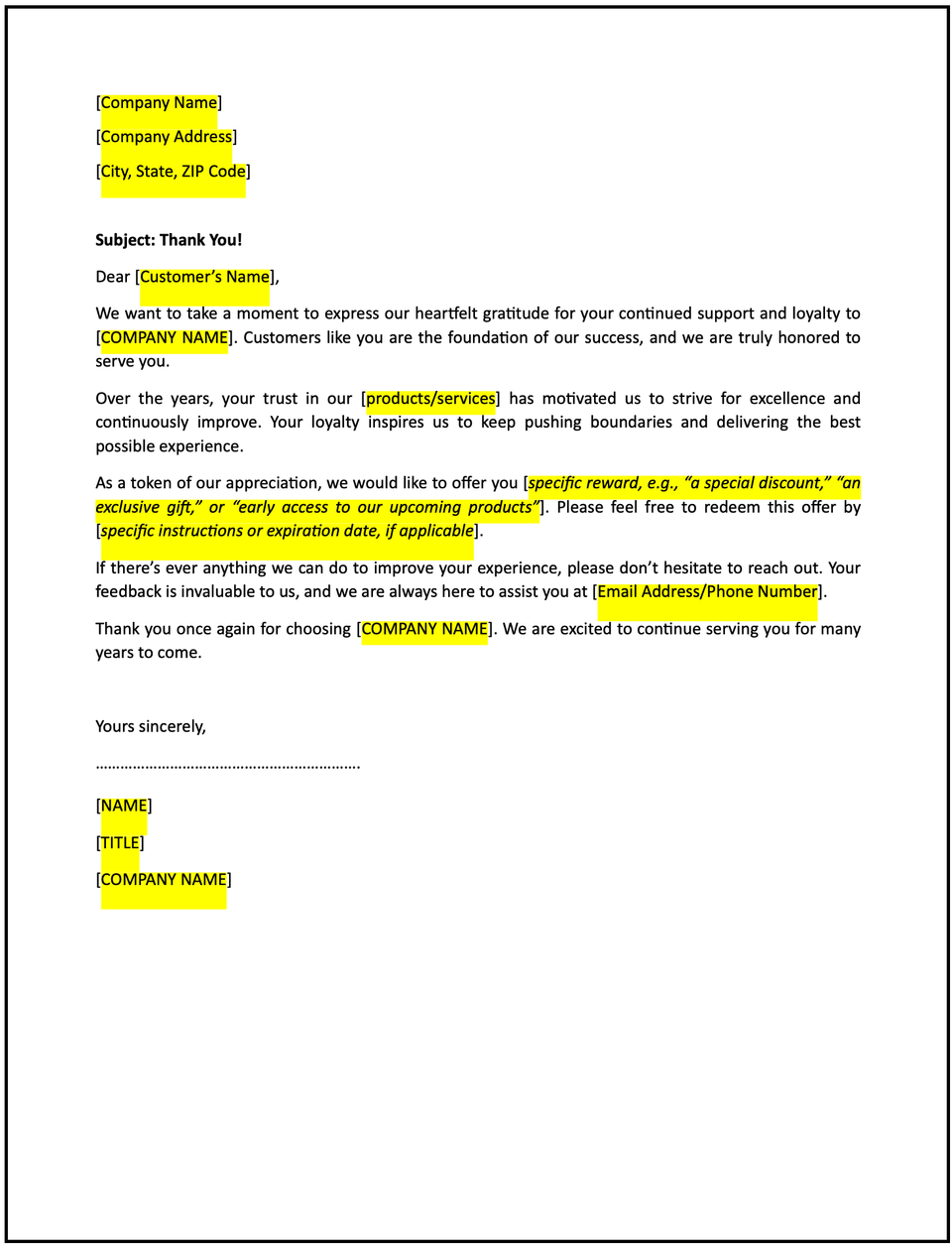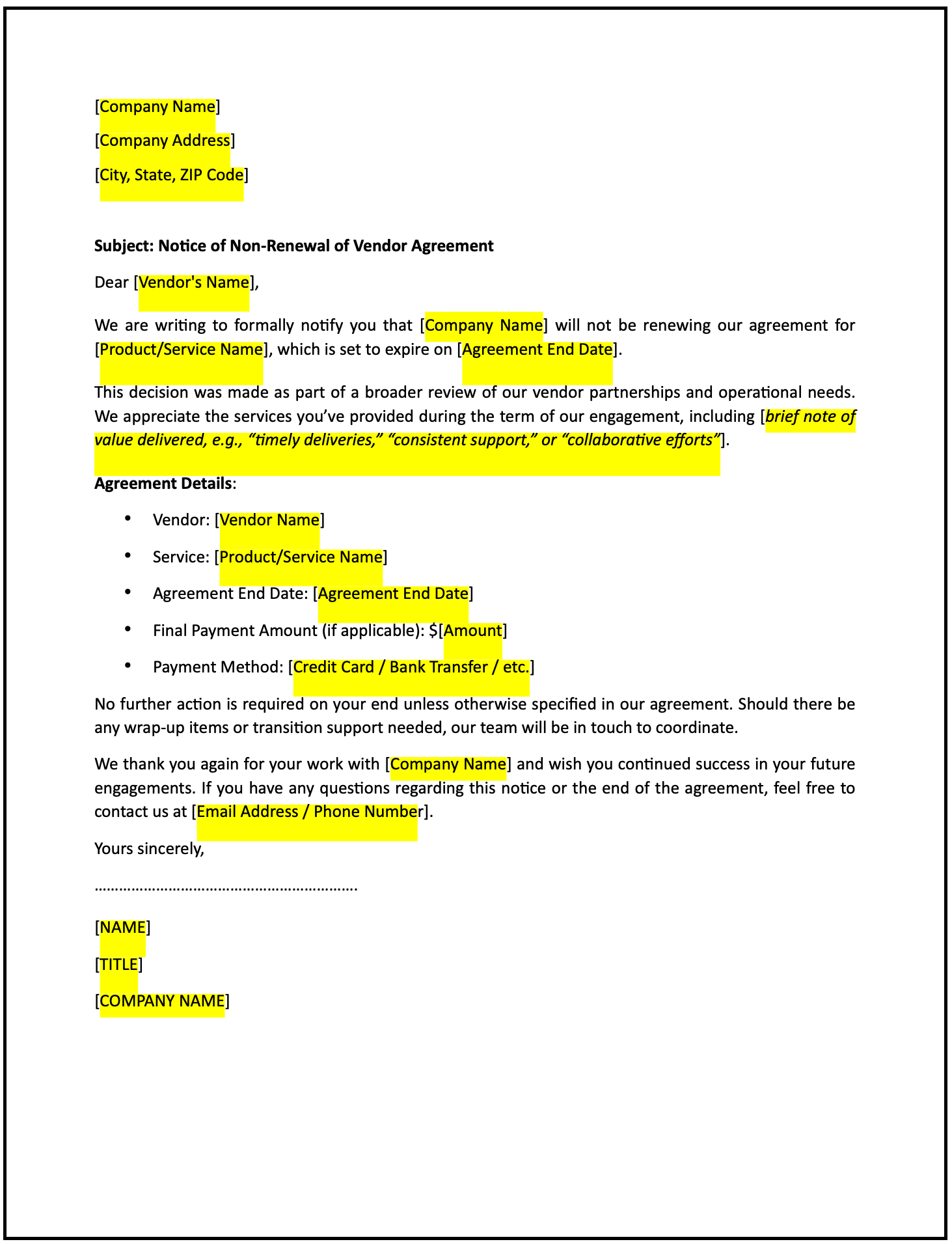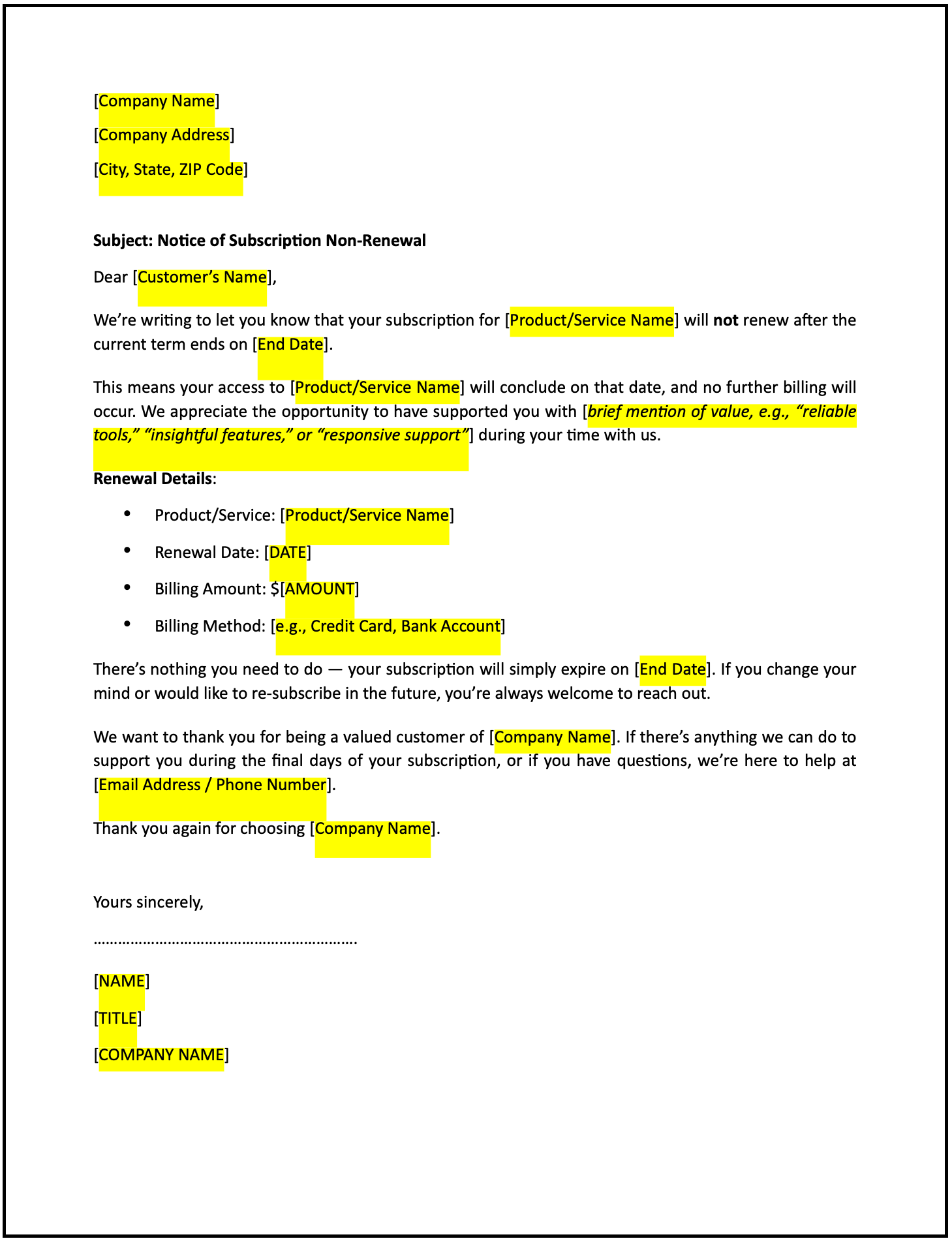Thank-you letter for customer loyalty: Free template

Thank-you letter for customer loyalty
Expressing gratitude for customer loyalty is an effective way to strengthen relationships and foster long-term trust. This letter provides a professional way to thank the customer for their support, highlight their value to your business, and encourage continued engagement.
How to use this thank-you letter for customer loyalty
- Open with appreciation: Begin by sincerely thanking the customer for their loyalty and continued support.
- Highlight their value: Acknowledge the customer’s importance to your business and the role their loyalty plays in your success.
- Mention milestones (if applicable): Reference any specific achievements or milestones, such as the length of their relationship with your business or significant contributions.
- Offer a token of appreciation (optional): Include a small gesture of gratitude, such as a discount, exclusive offer, or reward, if appropriate.
- Reaffirm commitment: Emphasize your dedication to maintaining the quality and value they’ve come to expect.
- Maintain a professional tone: Ensure the letter is respectful, warm, and customer-focused.
- Invite feedback or engagement: Encourage the customer to share their thoughts or explore upcoming opportunities with your business.
Benefits of using a thank-you letter for customer loyalty
This letter template ensures a structured and professional way to express gratitude while strengthening relationships and fostering goodwill. Here’s how it helps:
- Builds trust: Acknowledging loyalty demonstrates that you value the customer’s relationship.
- Enhances engagement: Expressing appreciation fosters a sense of connection and encourages continued interaction.
- Reflects professionalism: A well-crafted thank-you letter reinforces your brand’s commitment to customer care.
- Strengthens relationships: Proactive gratitude helps solidify long-term customer loyalty.
- Drives retention: Recognizing customers’ value increases their likelihood of remaining engaged with your business.
Tips for writing an effective thank-you letter for customer loyalty
- Be specific: Clearly acknowledge the customer’s loyalty and any notable milestones or contributions.
- Use professional language: Maintain a warm and respectful tone to make the customer feel valued.
- Offer a gesture (if appropriate): Including a token of appreciation can deepen the customer’s connection to your business.
- Reaffirm your commitment: Emphasize your dedication to maintaining high-quality products or services.
- Keep it concise: Focus on the key points without overwhelming the customer with excessive details.
Frequently asked questions (FAQs)
Q: What details should I include in this letter?
A: Include a sincere thank-you, acknowledgment of their loyalty, and, if applicable, a token of appreciation or an exclusive offer.
Q: Should I personalize the letter?
A: Yes, addressing the customer by name and referencing specific milestones or interactions makes the letter more meaningful.
Q: Who typically receives this letter?
A: Send the letter to long-term customers, loyal clients, or those who have significantly contributed to your business.
Q: How formal should this letter be?
A: The tone should be professional yet warm and sincere to convey genuine appreciation.
Q: When should this letter be sent?
A: Send the letter at regular intervals, after milestones, or during special occasions, such as anniversaries or holidays.
Q: Can this letter include promotional offers?
A: Yes, including an exclusive offer or discount can serve as a token of appreciation and encourage further engagement.
Q: Is acknowledgment from the customer required?
A: While not required, inviting the customer to share feedback or thoughts demonstrates openness and attentiveness.
This article contains general legal information and does not contain legal advice. Cobrief is not a law firm or a substitute for an attorney or law firm. The law is complex and changes often. For legal advice, please ask a lawyer.


